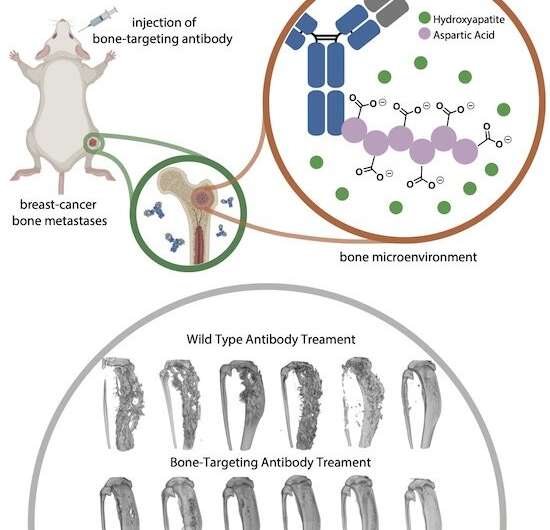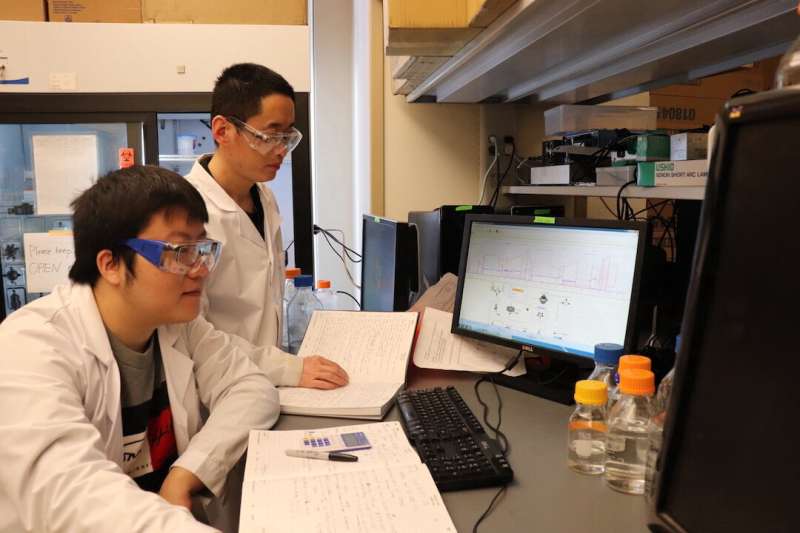Antibody with engineered peptide targets bone metastasis

A moderate amount of a peptide-enhanced, biological cancer drug goes a long way in treating breast cancers that metastasize to the bone.
A study by scientists at Rice University and Baylor College of Medicine demonstrated the effective treatment of such cancers in rodent models, bringing hope for new therapies to treat bone metastases.
The open-access study, to appear on the cover of the American Chemical Society journal ACS Central Science, advances techniques pioneered by Rice chemist Han Xiao and his co-author at Baylor, biologist Xiang Zhang.
They discovered through extensive testing that engineering "bone-homing" peptides and attaching them to a common breast cancer drug, the antibody trastuzumab, effectively targets and attacks bone tumors.
The researchers reported their surprise that injecting more of the drug compound doesn't make it better. The drug contains an engineered peptide that finds and binds to bone, but worked best when a moderate amount was delivered.
"The negative charge of the peptide has an affinity for the positively charged bone cancer niche," said Xiao, whose lab created a library of modified antibodies for testing. "We found the therapeutic efficacy is best with the antibody that has mediocre affinity. That's a really big discovery."

As many as 40% of breast cancer survivors eventually experience metastases to distant organs, most often to the bone. Xiao noted bone tumors are notoriously difficult to treat, given the hard nature of the material and its limited vascular network. Delivering a low amount of a drug, he said, can also help tumors develop resistance.
The study showed that peptide-enhanced antibodies also prevented secondary metastases from bone to other organs.
The researchers hope to find collaborators to move the strategy toward human trials.
Rice postdoctoral fellow Zeru Tian and graduate student Chanfei Yu are co-lead authors of the paper. Co-authors are Baylor postdoctoral fellows Weijie Zhang and Zhan Xu and postdoctoral associate Ling Wu; Rice graduate students Kuan-Lin Wu, Chenhang Wang and Yuda Chen, and Rice alumna Ruchi Gupta, now a graduate student at Yale School of Medicine.
Xiao is the Norman Hackerman-Welch Young Investigator and an assistant professor of chemistry, biosciences and bioengineering. Zhang is an associate professor of molecular and cellular biology and the McNair Scholar in the Lester and Sue Smith Breast Center at Baylor.
More information: Zeru Tian et al, Bone-Specific Enhancement of Antibody Therapy for Breast Cancer Metastasis to Bone, ACS Central Science (2022). DOI: 10.1021/acscentsci.1c01024




















